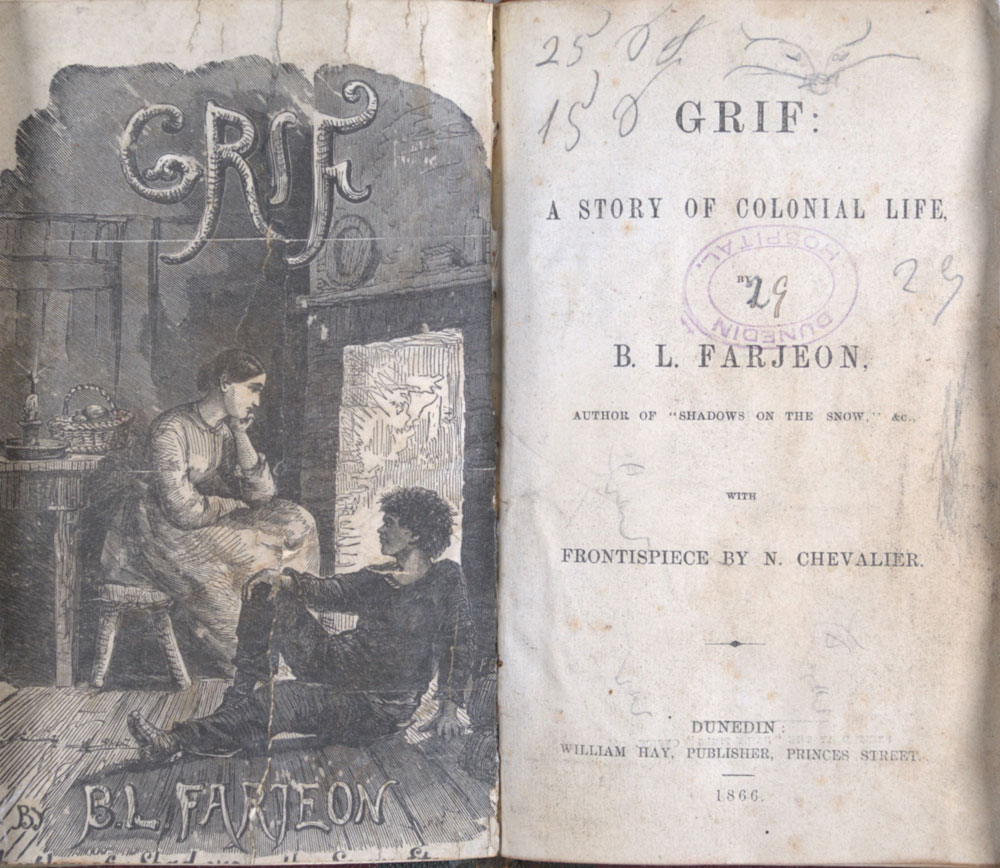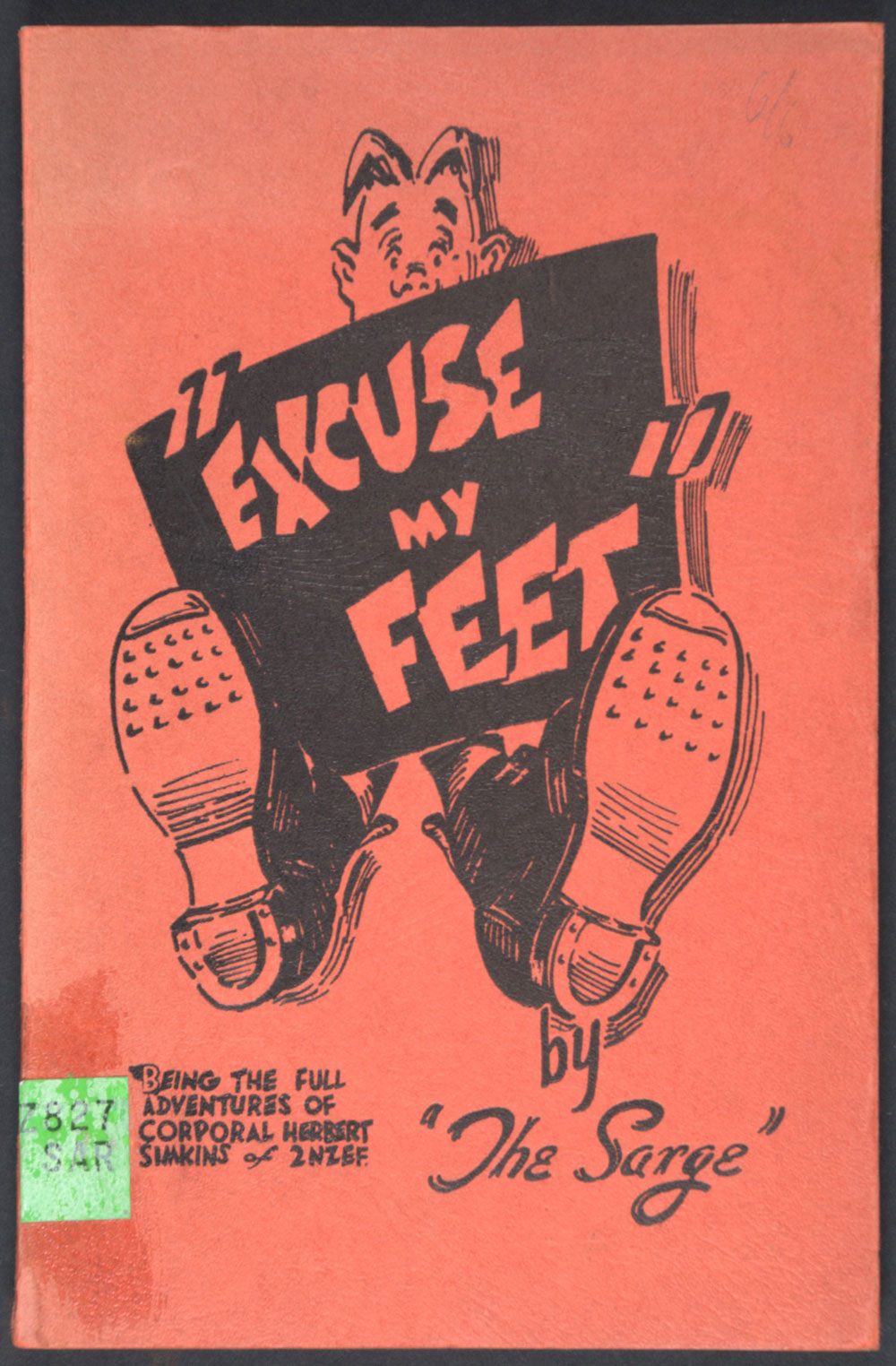Case 10
- Otago Daily Times association

Sir Julius Vogel. Anno domini 2000, or, Woman’s destiny. London: Hutchinson and Co., 1889.
Born
in London in 1835, Julius Vogel was a talented journalist, editor and politician
who later became Premier of New Zealand. In 1861 he came to Dunedin via
Victoria and was a founder of the Otago
Daily Times. He remained its editor until 1868 and left Dunedin in 1869 to
embark on his distinguished political career before retiring to England in
1888. Shortly after his retirement and in ill-health Vogel wrote his sole novel,
Anno domini 2000, or, Woman’s destiny,
a futuristic romance in which women held the highest posts in government, and
poverty had been eradicated.

Sir Julius Vogel. Anno domini 2000, or, Woman’s destiny. Colonial ed. London: Hutchinson and Co., 1889
A
somewhat uncharacteristic endeavour, the novel Anno domini 2000, or, Woman’s destiny was largely a vehicle for
Vogel’s political ideals. He optimistically presents a future in which the
financial elites have worked together to create a booming and tightly bound
British Empire of which New Zealand constitutes a thriving component. Vogel’s
novel was however neither the financial success nor the new career path he
desired.

Sir Julius Vogel. Anno domini 2000, or, Woman’s destiny. Colonial ed. London: Hutchinson and Co., 1889
Open image in new window

Farjeon, B.L. Grif: a story of colonial life. Dunedin: William Hay, 1866.
Born
in London, Benjamin Leopold Farjeon (1838-1903) came to Dunedin via Victoria in
1861. He soon became business manager of the newly established Otago Daily Times where Julius Vogel was
editor. Grif made Farjeon’s name as a
novelist and was subsequently revised and several times reprinted. Two further
novels, Jessie Trim and At the sign of the silver flagon were
published in Dunedin newspapers between 1874 and 1880.
![Farjeon, B.L. <em>Shadows on the snow: a Christmas story.</em> Dunedin: William Hay, [1865]](https://www.reedgallery.co.nz/__data/assets/image/0017/511163/10d.jpg)
Farjeon, B.L. Shadows on the snow: a Christmas story. Dunedin: William Hay, [1865]
Farjeon’s
literary career flourished in Dunedin, where he wrote Shadows on the snow (1865) and Grif:
a story of colonial life (1866), both of which drew upon his experience of
the Australian goldfields. Both were set up in type by Farjeon in the Times office. He lived in Dunedin until
December 1867, when he returned to London to continue his literary career as a
popular novelist and short story writer. In 1877, he married Margaret Jane
Jefferson. Their children included the celebrated young person’s author,
Eleanor Farjeon.

Sumpter, G.H. Excuse my feet: being the full adventures of Corporal Herbert Simkins of 2NZEF. Dunedin: Otago Daily Times and Witness Newspapers, 1949.
Born
in Oamaru, Geoffrey Hugh Sumpter (1913-2004) worked as a reporter for the Otago Daily Times, before leaving for
service during World War II. During the War he wrote for troopship journals in
which he first conceived of the fictional character Corporal Simkins. After the
War he returned to Dunedin and the Otago
Daily Times, for which he wrote copious articles. In 1949, he published the
final version of the saga of Simkins, as Excuse
my feet under the pseudonym ‘The Sarge.’

Sumpter, G.H. Excuse my feet: being the full adventures of Corporal Herbert Simkins of 2NZEF. Dunedin: Otago Daily Times and Witness Newspapers, 1949.
Open image in new window




![Farjeon, B.L. <em>Shadows on the snow: a Christmas story.</em> Dunedin: William Hay, [1865]](https://www.reedgallery.co.nz/__data/assets/image/0017/511163/10d.jpg)
